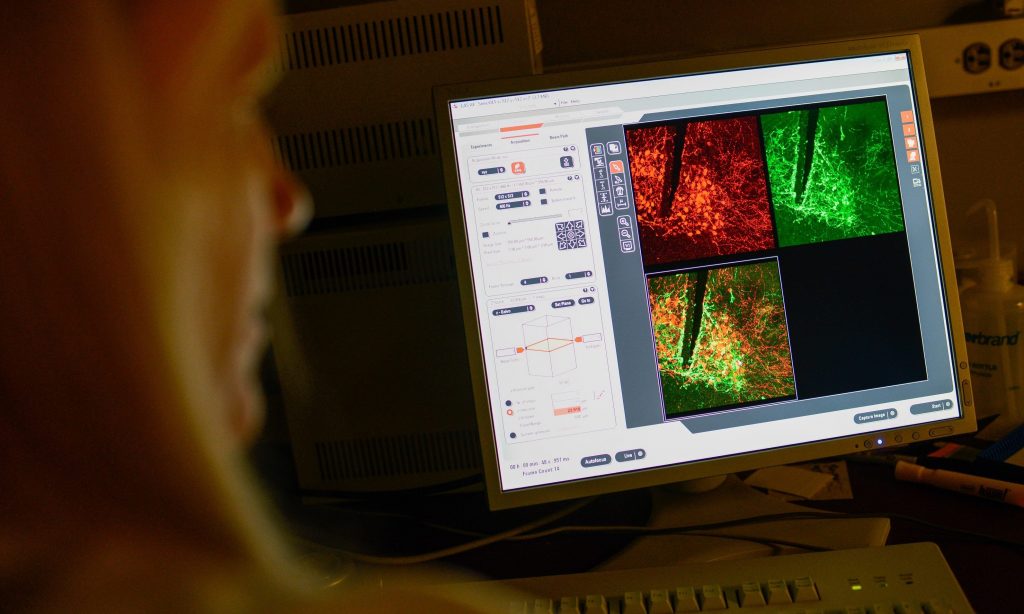Integrative Physiology, Neuroscience, and Behavior

The focal area in integrative physiology, neuroscience and behavior is dedicated to understanding the mechanisms underlying animal function and behavior. Research in this cluster is interactive, integrating different disciplines to address questions at the genetic, molecular, cellular, physiological and organismal levels. A guiding principle is that by integrating across multiple disciplines, we can gain deeper insights into how the nervous, endocrine and other systems enable animal function and adaptation to environmental conditions considered broadly, including physical, chemical and social influences. These deeper insights will increase understanding of basic aspects of animal behavior and function as well as mechanisms of disease.
Research approaches employ a variety of organisms, including both invertebrates and vertebrates. Particular strengths within the group include neuroscience, endocrinology, behavioral neuroendocrinology, genomics, environmental physiology and endocrine disruption.
Our goal is to prepare our students to be world-class scientists and leaders, unafraid of tackling the most significant scientific challenge of our era: integrating across the genetic, molecular, cellular, physiological and organismal levels to understand how animals function and behave. We believe that scientific advancement best occurs when scientists are allowed to work in a flexible, collegial, collaborative and intellectually adventurous atmosphere that allows for convergence and integration across multiple disciplines.
Learn about graduate training opportunities in this area within the Biology graduate program